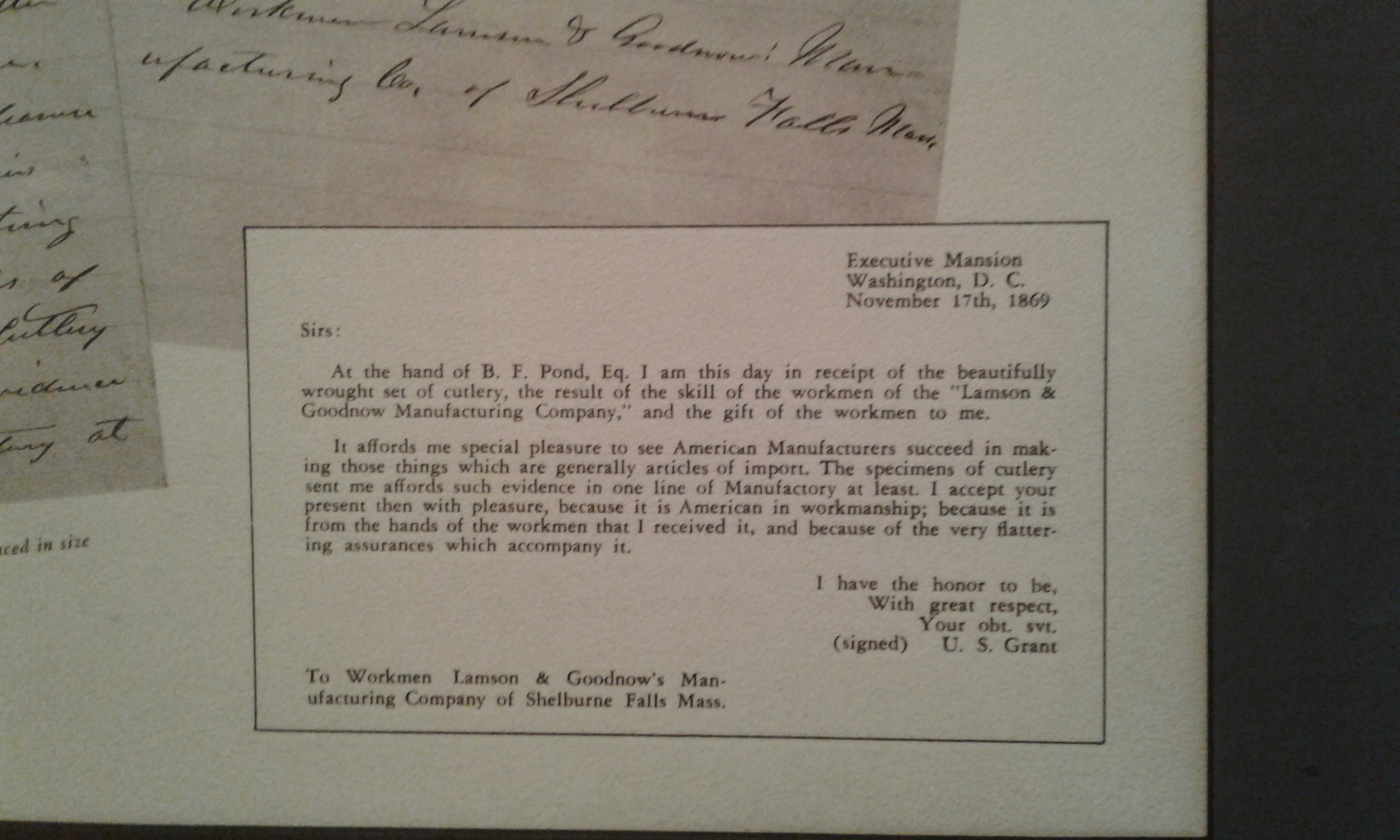Updated This past weekend, I was in North Adams, Ma. We did some exploring of the area and came across a company started in 1837 that still exists today in Buckland. It no longer produces there, as it has moved to Westfield, Ma. It’s only move in 178 years. However, it has not survived the trend of Capital Investment companies. Though, their being purchased does not appear to be a bad thing based on their website. This picture I took is why I am posting. The letter struck me as to what we are and have been discussing for decades now: globalization, off shoring, tariffs, industrial policy, etc. In particular, it is this sentence from the letter: It affords me special pleasure to see American manufacturers succeed in making those things which are
Topics:
Daniel Becker considers the following as important: Globalization, manufacturing, politics, tariffs, US/Global Economics
This could be interesting, too:
Robert Skidelsky writes Lord Skidelsky to ask His Majesty’s Government what is their policy with regard to the Ukraine war following the new policy of the government of the United States of America.
Joel Eissenberg writes No Invading Allies Act
Ken Melvin writes A Developed Taste
Bill Haskell writes The North American Automobile Industry Waits for Trump and the Gov. to Act
Updated
This past weekend, I was in North Adams, Ma. We did some exploring of the area and came across a company started in 1837 that still exists today in Buckland. It no longer produces there, as it has moved to Westfield, Ma. It’s only move in 178 years. However, it has not survived the trend of Capital Investment companies. Though, their being purchased does not appear to be a bad thing based on their website.
This picture I took is why I am posting.
The letter struck me as to what we are and have been discussing for decades now: globalization, off shoring, tariffs, industrial policy, etc. In particular, it is this sentence from the letter:
It affords me special pleasure to see American manufacturers succeed in making those things which are generally articles of import.
There has always been global trade. What appears to have changed is the nature of the competition event. Look up North Adams. Arnold Print Works. They had offices in New York and Paris France.
At its peak in 1905, Arnold print works employed more than 3,000 workers and was one of the world’s leading producers of printed textiles. Arnold produced 580,000 yards or 330 miles of cloth per week. Arnold had offices in New York City and Paris. In addition to printing the textiles, Arnold Print Works expanded and built their own cloth-weaving facilities in order to produce “grey cloth”, which was the crude, unfinished textile from which printed color cloth was made.[5]
Update: There is this one other line regarding Arnold Print Works which reminded me of another prior post.
In 1942 Arnold Print Works was forced to close its doors and leave North Adams due to the low prices of cloth produced in the South and abroad,…
My prior post is (11/28/08) regarding a past Democratic Senator, Ernest F. “Fritz” Hollings. He hated unions. He hated “free trade” (off shoring of jobs). But he failed to see that his work of promoting the South as a cheap labor nonunion region was exactly the same thing he was hating regarding the off shoring of jobs.
This facility was followed by Sprague Electric. I recognize the name due to my guitars. As to it’s demise, there is this:
Also by the 1980s, many electronic assembly plants were overseas, and there was more inclination to buy local or from areas closer to assembly. This was an area Sprague Electric could not compete.
Which gets me to a past post of 9/13/09. As relevant and more so today as when I posted it. It is worth reading just for the understanding of the theory of “Stars, Cash Cows and Dogs”. A fable: The Guitar Player who sold his gear or, Bruce Henderson vs. Gordon Moore
What Arnold Print Works and Sprague Electric have in common is that these were companies that were founded on the idea of making a product. Arnold Print Works applied current technology. Sprague was actually a creator. Not a “job creator”. Just a plain old creative power.

